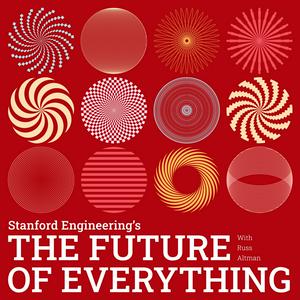The world of women’s sports is experiencing unprecedented growth, attention, recognition, and investment. Elite athletes including Simone Biles, Caitlin Clark, Serena Williams, and many others are having a significant impact on culture, and more women than ever are participating in both professional and recreational sports. Earlier this year, Russ sat down with Dr. Emily Kraus to talk about the future of female athletic health and we’re re-running the episode today. She shared a number of key differences between women and men in sport, and illuminates that these differences are vastly understudied, though she’s working to close that gap. This is an episode we shared with a number of athletes we know, and we hope you’ll do the same.Have a question for Russ? Send it our way in writing or via voice memo, and it might be featured on an upcoming episode. Please introduce yourself, let us know where you're listening from, and share your question. You can send questions to
[email protected] Reference Links:Stanford Profile: Emily Kraus Emily’s Survey: Centering The Female Athlete Voice in a Sports Science Research AgendaStanford FASTR ProgramWu Tsai Human Performance AllianceConnect With Us:Episode Transcripts >>> The Future of Everything WebsiteConnect with Russ >>> Threads / Bluesky / MastodonConnect with School of Engineering >>> Twitter/X / Instagram / LinkedIn / FacebookChapters:(00:00:00) IntroductionRuss Altman introduces Dr. Emily Kraus, professor of orthopedics at Stanford University.(00:01:55) Injury Trends in Female AthletesPrevalent injuries and health issues unique to female athletes.(00:03:34) Menstrual Health in Young AthletesHow training affects puberty, periods, and long-term health.(00:06:30) Body Image & Mental HealthNavigating body composition, stigma, and disordered eating.(00:08:30) Competing Through MotherhoodPostpartum athletes and the need for more scientific support.(00:11:34) Sharing vs. Guarding Performance DataWhether female athletes are sharing information or staying competitive.(00:12:25) Fueling, Recovery & Modern TrainingNutrition, rest, and strength training as key performance tools.(00:15:31) Gender-Based Nutrition DifferencesHow under-researched female athletes are fueling without guidance.(00:18:55) The Female Athlete Voice ProjectWhat elite athletes want researched—and what’s missing.(00:21:21) FASTR & the Science of RED-SNew initiatives addressing energy deficiency and performance.(00:24:05) Applying Elite Insights to All WomenHow weekend warriors can benefit from elite research.(00:25:11) Cultural Challenges in SportSexism, inequity, and overlooked institutional barriers.(00:27:03) Getting the Word OutFinding ways to educate athletes, coaches, and clinicians more effectively.(00:29:37) Conclusion
Connect With Us:Episode Transcripts >>> The Future of Everything WebsiteConnect with Russ >>> Threads / Bluesky / MastodonConnect with School of Engineering >>>Twitter/X / Instagram / LinkedIn / Facebook


